The cultural contrasts between Cretans and Western Europeans run deeper than most visitors expect. During my first few weeks exploring Crete, Greece, I thought I understood Mediterranean culture – but I quickly learned that this Greek island marches to its own distinct beat. From their fluid concept of time to their boundless hospitality, from family dynamics to centuries-old traditions, Cretans have preserved a way of life that stands beautifully apart from Western European norms, offering valuable insights into a culture that has maintained its authentic character despite modernization.
These seven key distinctions showcase not just how Cretans do things differently, but why their approach to life often feels more enriching than the fast-paced Western European lifestyle I’m accustomed to.
- Time Is Relative
The concept of time in Crete operates on an entirely different wavelength from Western European standards. While I’m used to strict schedules and punctuality, Crete introduced me to the “siga siga” (slowly slowly) philosophy, where time is treated as a flexible companion rather than a strict ruler.
You’ll notice this immediately in daily life. Business hours are more like loose guidelines – a shop owner might close early to attend a family celebration or open late after a lengthy coffee with friends. During my first two-week stay, I learned that when a Cretan says they’ll meet “argotero” (later), it could mean anything from an hour to next Tuesday. What initially felt frustrating soon became oddly liberating!
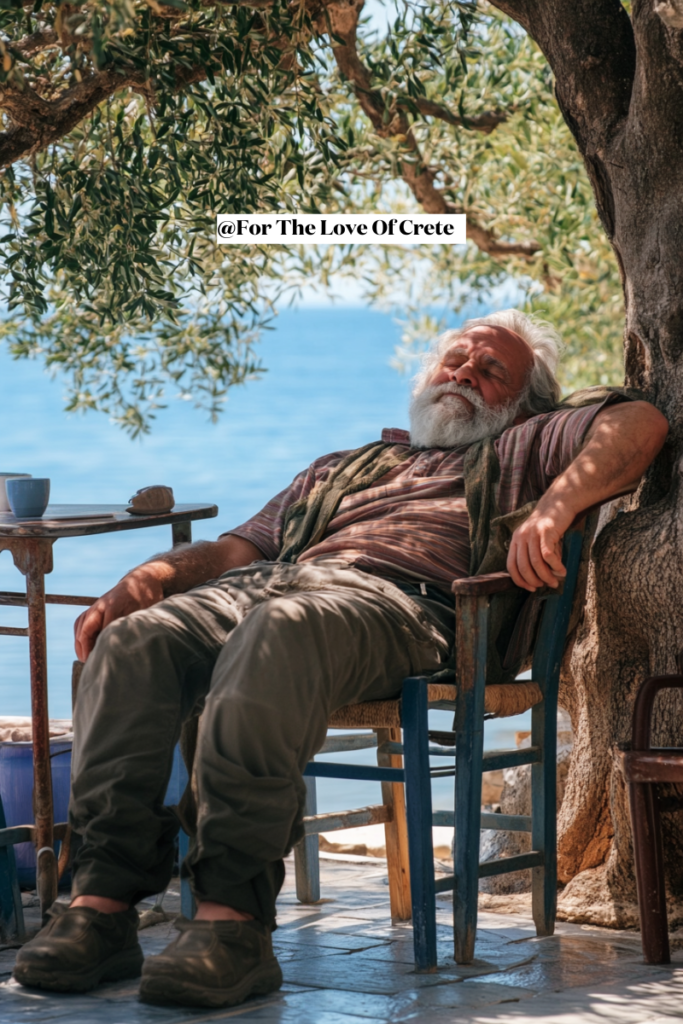
The afternoon siesta is sacred here. While Western Europeans power through their workday, Cretans embrace a natural rhythm that includes a generous pause. Many shops and businesses close for several hours in the afternoon, usually between 2-5 PM. The respect for this time runs so deep that there’s even a law restricting noise during these hours, especially after 3 PM. At first, this seemed inefficient to my Western mindset, but I’ve come to appreciate how this practice helps Cretans maintain a healthier work-life balance.
- Hospitality Knows No Bounds
If Cretans are relaxed about time, they’re anything but casual when it comes to hospitality. During my stays, I quickly discovered that “philoxenia” (love of strangers) isn’t just a cultural concept – it’s deeply woven into daily life. A simple stop to ask for directions in a mountain village turned into a two-hour feast, with my newfound hosts insisting I try what felt like every family recipe they had.
This warmth manifests in “kerasma” – the practice of offering treats to visitors. It’s practically sacred here. After every meal in local tavernas, I was surprised with complimentary fruits, desserts, or the famous Cretan raki. Refusing these gifts is not an option – I tried once and learned that a Cretan host will insist until you accept their generosity.
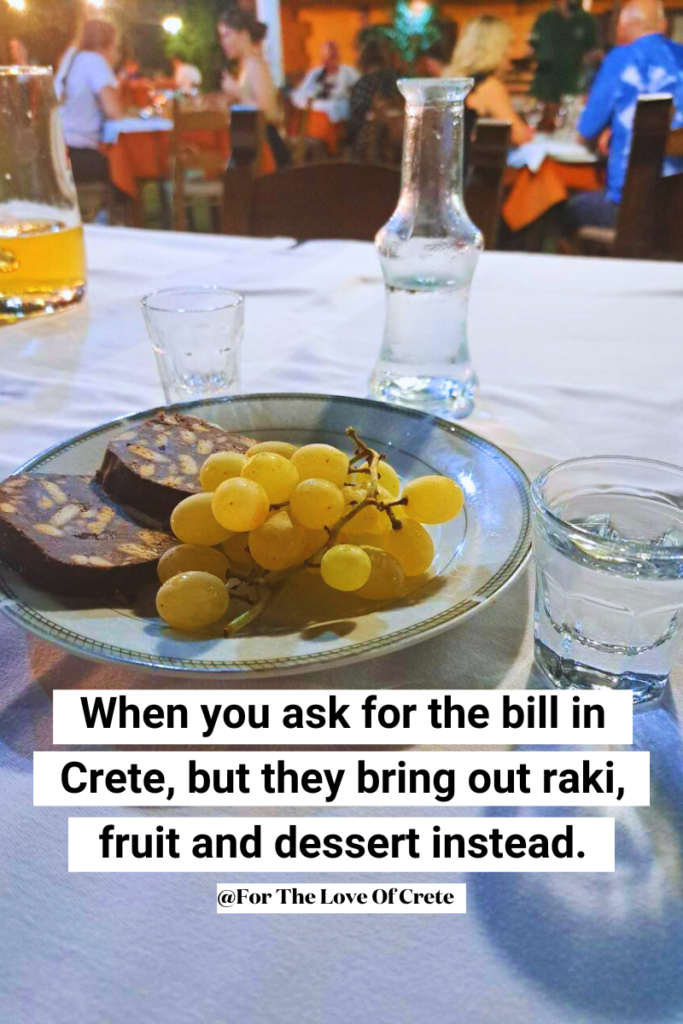
Even in modern Cretan cities, this tradition of hospitality thrives, though you might find it less prominent in some resort areas. Business meetings may happen over home-cooked meals rather than in offices, and unannounced visits are welcomed rather than viewed as intrusions. The Western European concept of scheduling social interactions feels foreign here, where spontaneous gatherings are the heart of daily life.
- Meals Are Social Affairs
If you’re used to Western European dining schedules, Cretan meal times will surprise you. I discovered that meals here aren’t just about sustenance – they’re social events that bring people together for hours of food, wine, and conversation.
The main meal typically starts between 2-3 PM, followed by that treasured afternoon siesta. Dinner is an equally relaxed affair – most tavernas don’t fill up until after 9 PM. When I first visited a family-run taverna in a mountain village, I was amazed to find myself still at the table past midnight, sharing stories and sipping raki with locals who had become friends over the course of the evening.
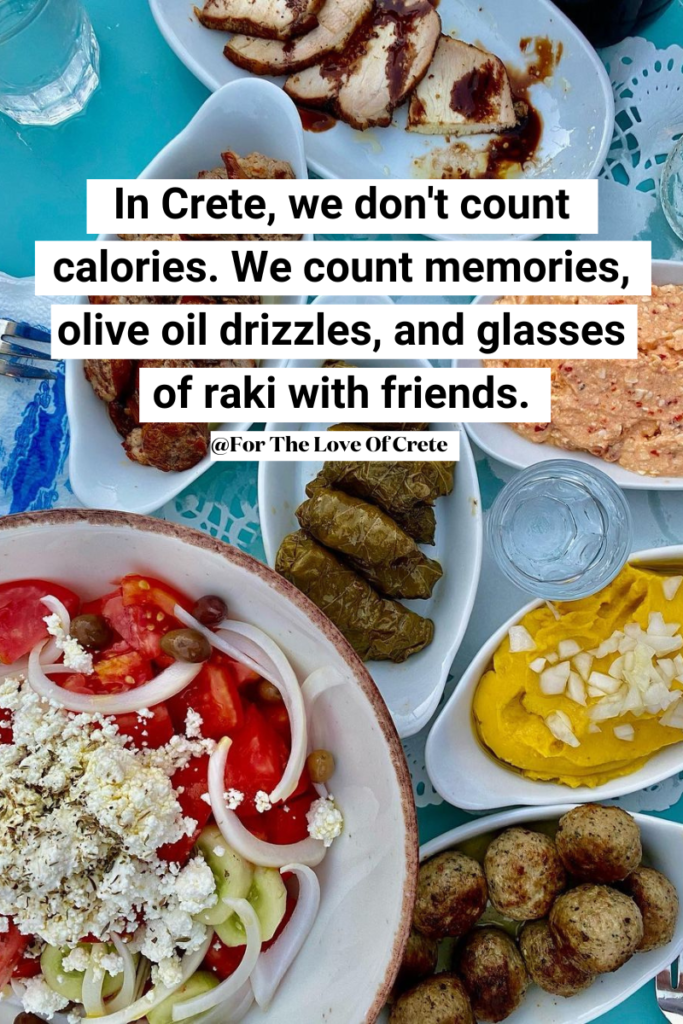
The concept of shared plates adds to this social atmosphere. Instead of individual portions, meals revolve around an array of mezedes (small dishes) that appear throughout the evening. Don’t expect the bill until you explicitly ask – rushing diners out simply isn’t the Cretan way. My favorite memory is of a taverna owner who, seeing me check my watch, smiled and said, “Siga siga – the best conversations start after midnight.”
- Family Stays Close
Western European families might spread across countries for work and education, but Cretan families keep their roots firmly planted together. Throughout my stays, I noticed how three generations often live under one roof or at least within walking distance of each other. The concept of family here extends far beyond the nuclear unit I’m familiar with.
In the hills of Rethymno, I visited a family-run cheese farm where three generations worked together. The family compound included several houses built on their ancestral land, where siblings, cousins, and grandparents all lived within shouting distance of each other. The grandparents weren’t just occasional visitors but active participants in daily life, from cheese-making to helping run the family business.
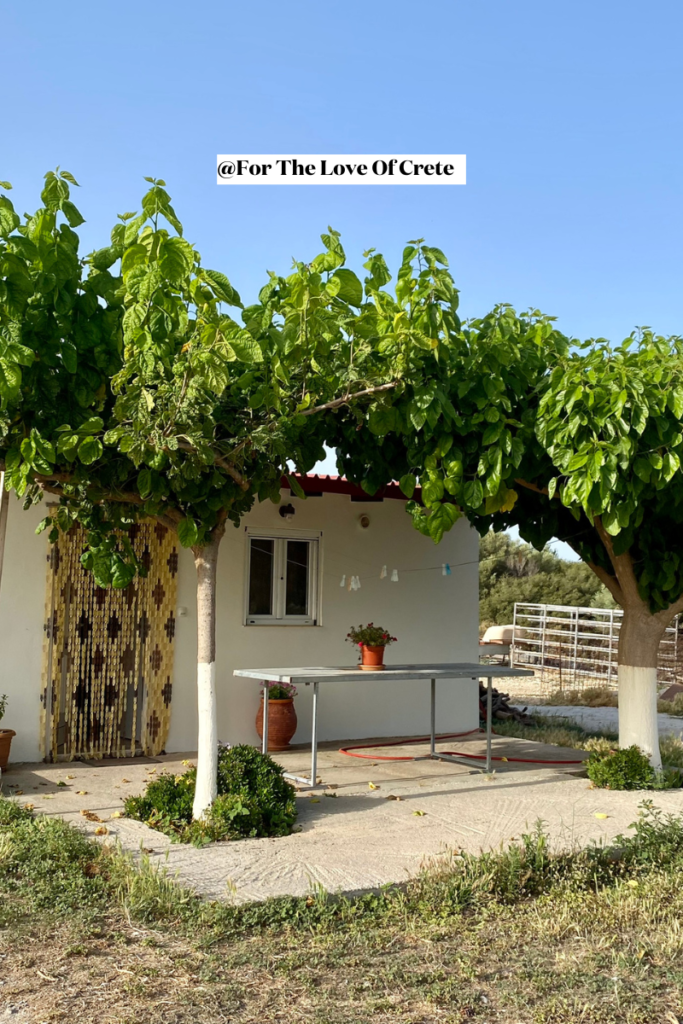
You won’t find many nursing homes here. Elderly care is a family affair, just as childcare often falls to grandparents rather than daycare centers. During my visits, I observed how this system creates a beautiful cycle of support – parents work while grandparents watch the children, and in turn, adult children care for their aging parents. Doors between family homes stay unlocked, and relatives pop in and out freely – a stark contrast to the scheduled visits I’m used to back home.
- Traditional Dress Persists
While Western Europeans largely reserve traditional clothing for special occasions, elements of Cretan dress remain part of daily life, especially in the mountain villages. In regions like Anogia and Sfakia, where customs run deep, you’ll still spot older men incorporating pieces of traditional attire into their daily dress.
The complete traditional male costume is remarkably detailed. The “vraka” (baggy breeches) forms the base, complemented by a vest (“geleki“) and jacket (“mitani“). A distinctive red silk sash (“zounari“) holds the traditional silver knife (“basalis“). The most symbolic element is the “sariki” – a black headscarf whose knots symbolize the tears shed during Cretan history, particularly during the Ottoman occupation and the 1866 tragedy at Arkadi Monastery.

While contemporary Cretans often wear black shirts with their traditional elements, it’s interesting to note that historically, the traditional shirt was white, made of cotton or silk. Like many living traditions in Crete, the dress code has evolved while maintaining its cultural significance. Today, rather than wearing the complete traditional outfit, older villagers often incorporate selected pieces into their daily attire, keeping their connection to these customs alive in a practical way.
- Celebrations Last for Days
The contrast between Western European and Cretan celebrations couldn’t be more striking. While a Western European party might last an evening, Cretan festivities are marathon events that transform entire villages into buzzing hubs of joy and tradition.
In a typical village festival, the scene unfolds with traditional lyra and laouto filling the square from early evening until well past dawn. What makes these celebrations special is how the entire community participates – from elderly couples performing intricate traditional dances to children learning the steps from their grandparents.
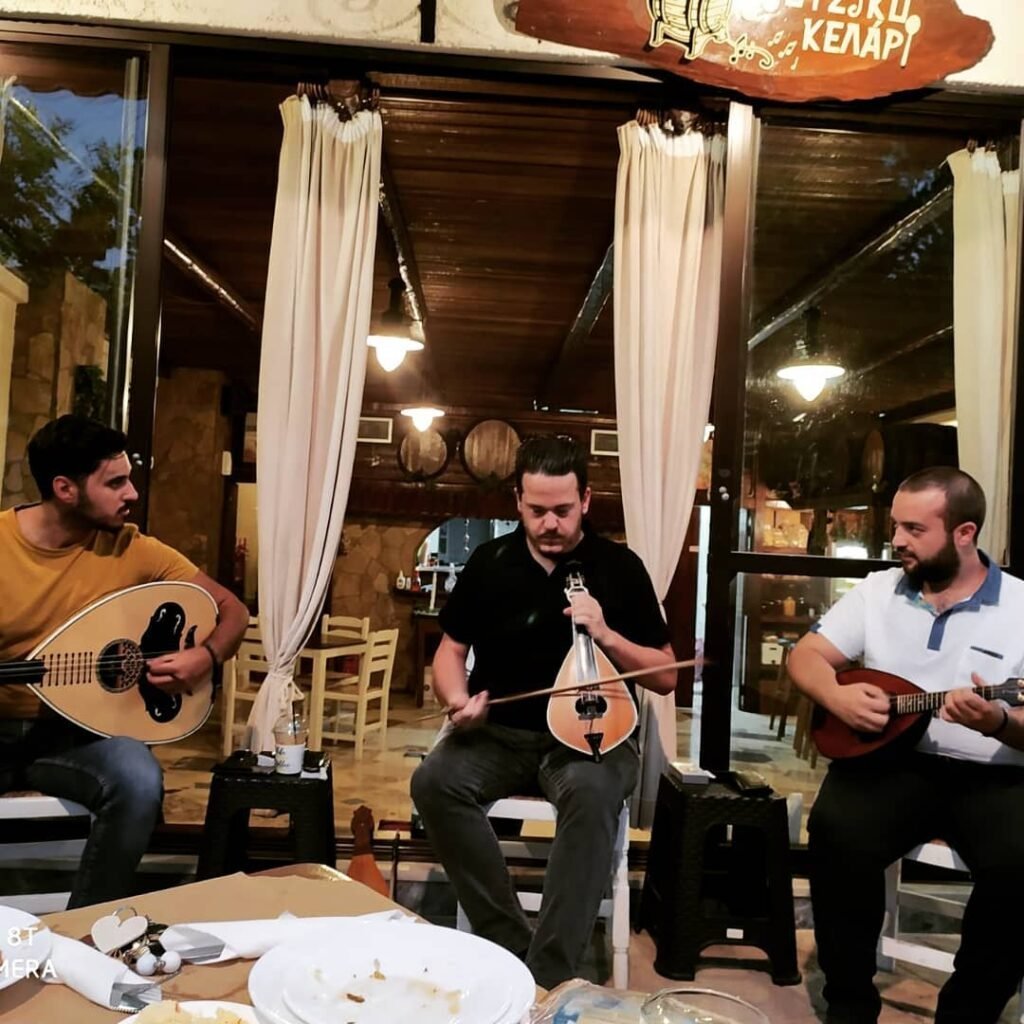
These celebrations feature an endless flow of local specialties: souvlaki grilling on open fires, homemade wine flowing freely, and the inevitable raki making its rounds. But it’s not just about food and drink – it’s about community. The proud smiles of locals teaching visitors their dance steps, the impromptu mantinades (traditional rhyming couplets), and the genuine warmth of people who treat every guest like family make these festivities unforgettable.
- Ancient Customs Endure
Unlike Western Europeans who often view traditions as relics of the past, Cretans seamlessly weave their heritage into modern life. The fascinating blend of old and new creates a cultural tapestry that’s both practical and profound.
In the mountain villages around Rethymno and Lasithi, I watched as traditional crafts continue to thrive. Local artisans still create handmade knives and weave textiles using techniques passed down through generations. Women gather wild horta (greens) using knowledge that predates written recipes, while shepherds navigate mountain paths their ancestors walked centuries ago.
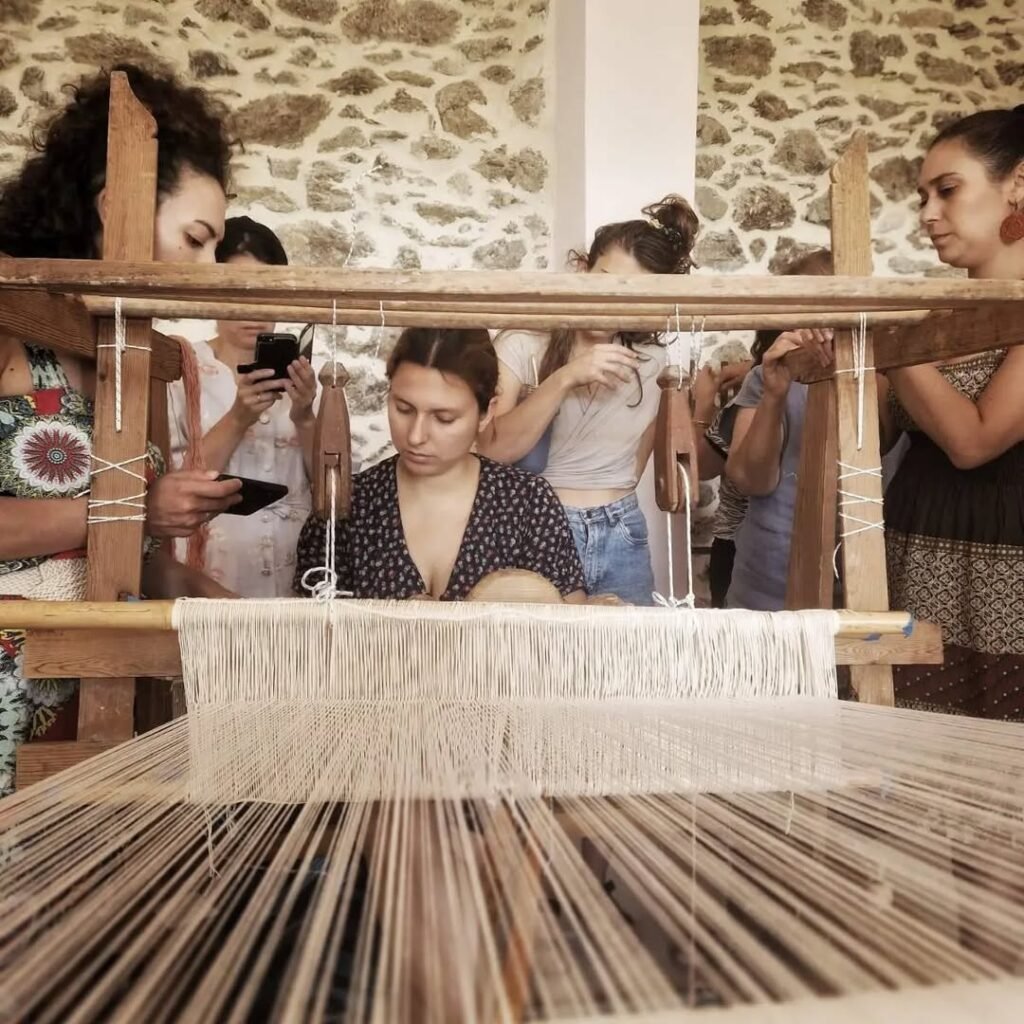
These aren’t customs preserved for tourists – they’re living traditions that serve a purpose. The olive harvest still brings families together each year, working groves that have been in their care for generations. Even modern challenges are approached with a mix of ancestral wisdom and contemporary know-how.
When my host in a small village offered me bread made from his grandmother’s recipe, using wheat grown in their family fields, I understood that in Crete, the past isn’t just remembered – it’s lived.
Conclusion
The differences between Cretan and Western European lifestyles reveal more than just cultural contrasts – they showcase a way of life that prizes human connection over efficiency, tradition over trends, and community over convenience. Through their fluid approach to time, boundless hospitality, extended family bonds, enduring customs, and vibrant celebrations, Cretans demonstrate that preserving traditional values doesn’t mean resisting progress – it means maintaining what matters most while the world rushes by. These cultural distinctions aren’t mere tourist attractions but rather time-tested practices that continue to enrich daily life on this remarkable Greek island.
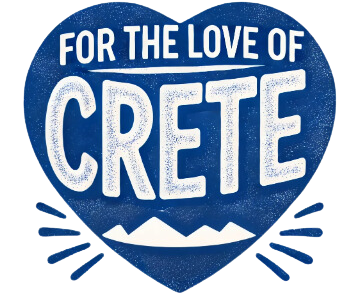

We have been visiting Crete for over 30 years now, some times twice a year, and what you have written…I could not have put it better myself. We have seen Georgioupolis grow and change so much, but the people remain the same. A beautiful island with beautiful people, the nicest thing ever said to me by our Cretan friend was “ No you are not just friends, you are our family”
Charlie, thank you so much for your beautiful comment—it truly touched my heart. To have visited Crete for over 30 years and to feel so deeply connected to its people and places is such a testament to the island’s magic. What your Cretan friend said to you captures the essence of Cretan hospitality so perfectly. It’s not just a way of life; it’s a feeling, a connection, and a bond that goes beyond words.
I hope Crete continues to feel like your second home for many years to come! 😊
Bella 💙
Hello Bella.
I think that customs and traditions similar to what we enjoy in Crete today probably once existed in most European countries but have gradually disappeared as a consequence of globalisation over the course of the last fifty or a hundred years, and more rapidly since the arrival of the internet. But through their strong and determined but friendly personalities, Cretans have done more than most to maintain their island’s identity, so its culture survives.
I’ve noticed similar in the West of Ireland. Perhaps being located at Europe’s extremes is a contributing factor.
The seven things that Cretans do differently are seven reasons for me wanting to return there soon, thanks to your well crafted words.
Good on you!
Terry.
Hello Terry,
I completely agree with you—globalization has a way of gradually chipping away at the individuality and uniqueness of each country. It’s such a loss when traditions and customs fade into history. I truly pray that Crete and its people continue to uphold their rich culture and traditions, as they are such a vital part of what makes the island so special.
Thank you for your kind words about the article. It makes me so happy to know it resonated with you and that Crete continues to call you back.
Με εκτίμηση (Me ektímisi) – With appreciation,
Bella
Bella
Thanks for describing all the experiences we have enjoyed since our first visit nearly 30yrs ago and which have drawn us back twice a year for the last 17yrs. We have experienced Easter, a local family wedding, christening and shared the sadness of their losses as well as the wonderful staff at the hospital. We shall continue to feel the connection forever.
Hi Trevor,
What a beautiful bond you’ve built with Crete and its people over the years. Thank you for reading and for taking the time to share your story — it means more than you know.
Με πολύ αγάπη – with much love,
Bella 💙
Having grown up in Iran, studied in Germany emigrated to England and then to Crete, then to Switzerland and then Germany, where I am already, my wristwatch runs on UTC, so time is absolute, but our perception of time is relative.